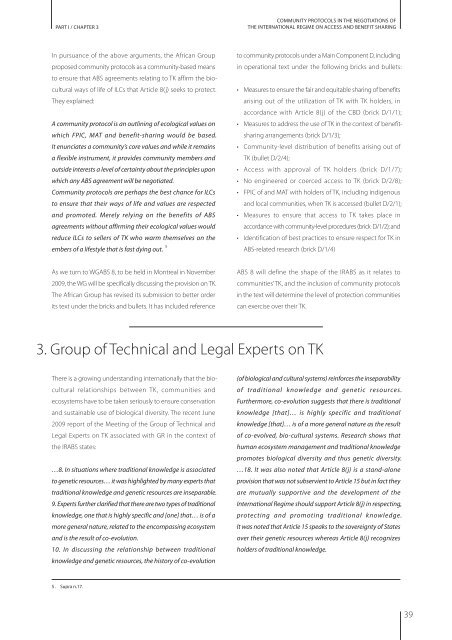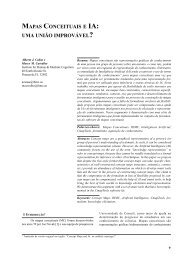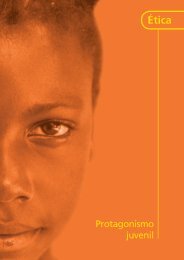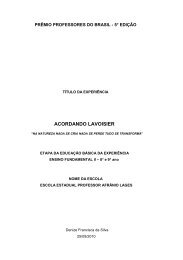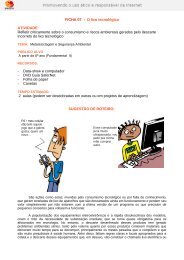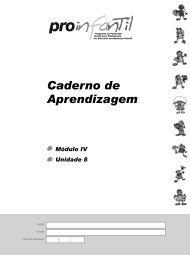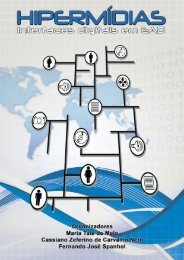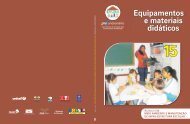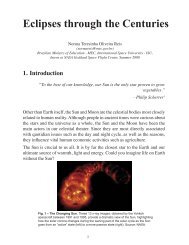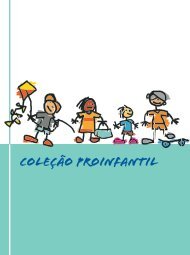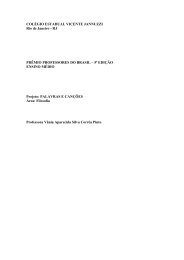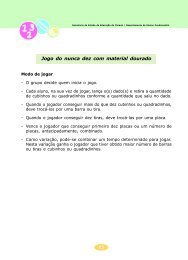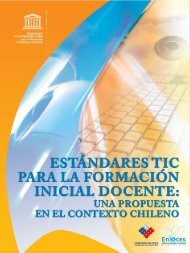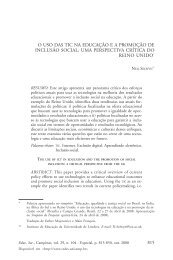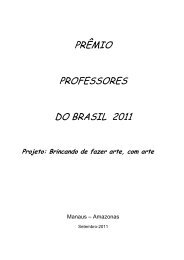BIO-CULTURAL COMMUNITY PROTOCOLS - Portal do Professor
BIO-CULTURAL COMMUNITY PROTOCOLS - Portal do Professor
BIO-CULTURAL COMMUNITY PROTOCOLS - Portal do Professor
You also want an ePaper? Increase the reach of your titles
YUMPU automatically turns print PDFs into web optimized ePapers that Google loves.
PART I / CHAPTER 3<br />
In pursuance of the above arguments, the African Group<br />
proposed community protocols as a community-based means<br />
to ensure that ABS agreements relating to TK affirm the biocultural<br />
ways of life of ILCs that Article 8(j) seeks to protect.<br />
They explained:<br />
A community protocol is an outlining of ecological values on<br />
which FPIC, MAT and benefit-sharing would be based.<br />
It enunciates a community’s core values and while it remains<br />
a flexible instrument, it provides community members and<br />
outside interests a level of certainty about the principles upon<br />
which any ABS agreement will be negotiated.<br />
Community protocols are perhaps the best chance for ILCs<br />
to ensure that their ways of life and values are respected<br />
and promoted. Merely relying on the benefits of ABS<br />
agreements without affirming their ecological values would<br />
reduce ILCs to sellers of TK who warm themselves on the<br />
embers of a lifestyle that is fast dying out. 5<br />
As we turn to WGABS 8, to be held in Montreal in November<br />
2009, the WG will be specifically discussing the provision on TK.<br />
The African Group has revised its submission to better order<br />
its text under the bricks and bullets. It has included reference<br />
5 . Supra n.17.<br />
to community protocols under a Main Component D, including<br />
in operational text under the following bricks and bullets:<br />
• Measures to ensure the fair and equitable sharing of benefits<br />
arising out of the utilization of TK with TK holders, in<br />
accordance with Article 8(j) of the CBD (brick D/1/1);<br />
• Measures to address the use of TK in the context of benefitsharing<br />
arrangements (brick D/1/3);<br />
• Community-level distribution of benefits arising out of<br />
TK (bullet D/2/4);<br />
• Access with approval of TK holders (brick D/1/7);<br />
• No engineered or coerced access to TK (brick D/2/8);<br />
• FPIC of and MAT with holders of TK, including indigenous<br />
and local communities, when TK is accessed (bullet D/2/1);<br />
• Measures to ensure that access to TK takes place in<br />
accordance with community-level procedures (brick D/1/2); and<br />
• Identification of best practices to ensure respect for TK in<br />
ABS-related research (brick D/1/4)<br />
ABS 8 will define the shape of the IRABS as it relates to<br />
communities’ TK, and the inclusion of community protocols<br />
in the text will determine the level of protection communities<br />
can exercise over their TK.<br />
3. Group of Technical and Legal Experts on TK<br />
There is a growing understanding internationally that the biocultural<br />
relationships between TK, communities and<br />
ecosystems have to be taken seriously to ensure conservation<br />
and sustainable use of biological diversity. The recent June<br />
2009 report of the Meeting of the Group of Technical and<br />
Legal Experts on TK associated with GR in the context of<br />
the IRABS states:<br />
…8. In situations where traditional knowledge is associated<br />
to genetic resources… it was highlighted by many experts that<br />
traditional knowledge and genetic resources are inseparable.<br />
9. Experts further clarified that there are two types of traditional<br />
knowledge, one that is highly specific and [one] that… is of a<br />
more general nature, related to the encompassing ecosystem<br />
and is the result of co-evolution.<br />
10. In discussing the relationship between traditional<br />
knowledge and genetic resources, the history of co-evolution<br />
<strong>COMMUNITY</strong> <strong>PROTOCOLS</strong> IN THE NEGOTIATIONS OF<br />
THE INTERNATIONAL REGIME ON ACCESS AND BENEFIT SHARING<br />
(of biological and cultural systems) reinforces the inseparability<br />
of traditional knowledge and genetic resources.<br />
Furthermore, co-evolution suggests that there is traditional<br />
knowledge [that]… is highly specific and traditional<br />
knowledge [that]… is of a more general nature as the result<br />
of co-evolved, bio-cultural systems. Research shows that<br />
human ecosystem management and traditional knowledge<br />
promotes biological diversity and thus genetic diversity.<br />
…18. It was also noted that Article 8(j) is a stand-alone<br />
provision that was not subservient to Article 15 but in fact they<br />
are mutually supportive and the development of the<br />
International Regime should support Article 8(j) in respecting,<br />
protecting and promoting traditional knowledge.<br />
It was noted that Article 15 speaks to the sovereignty of States<br />
over their genetic resources whereas Article 8(j) recognizes<br />
holders of traditional knowledge.<br />
39


